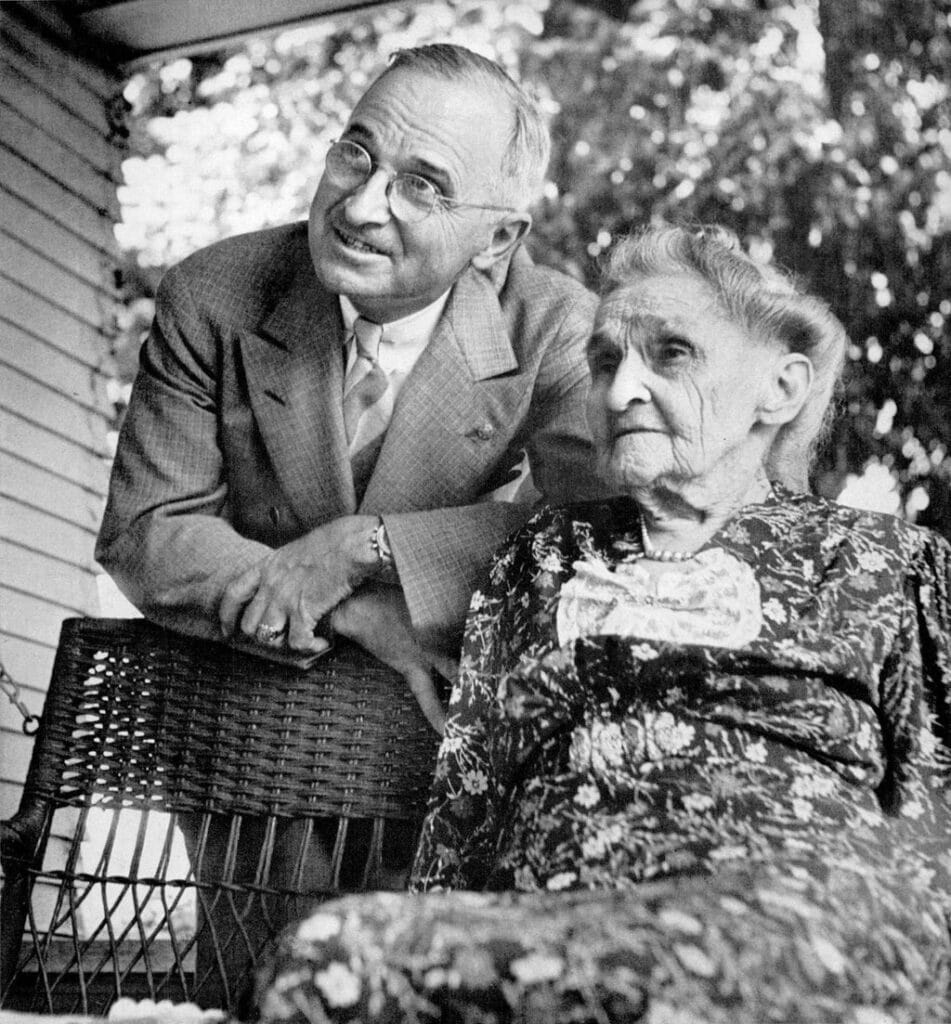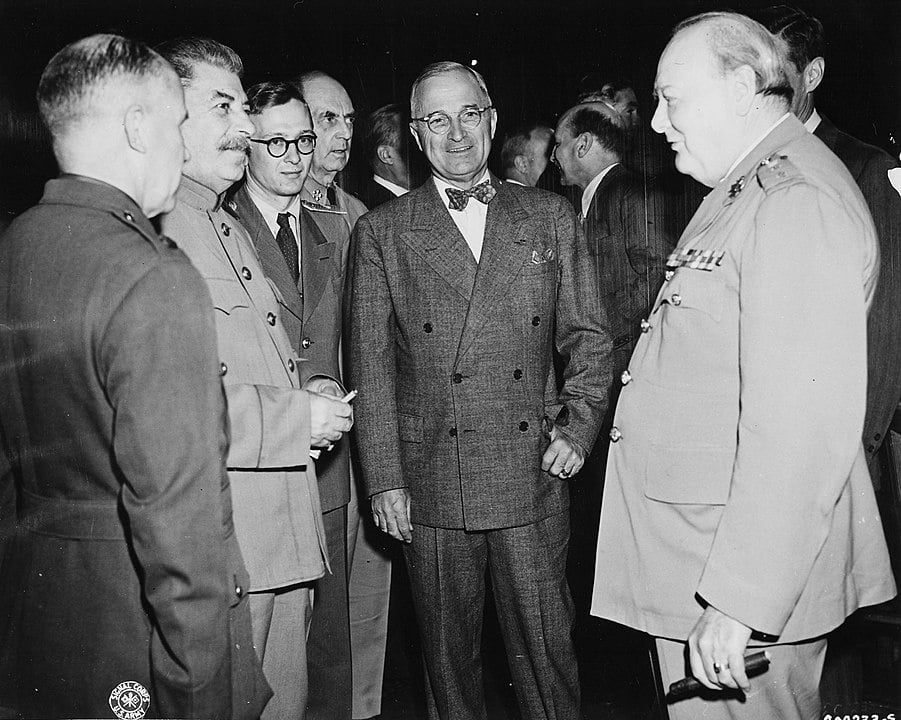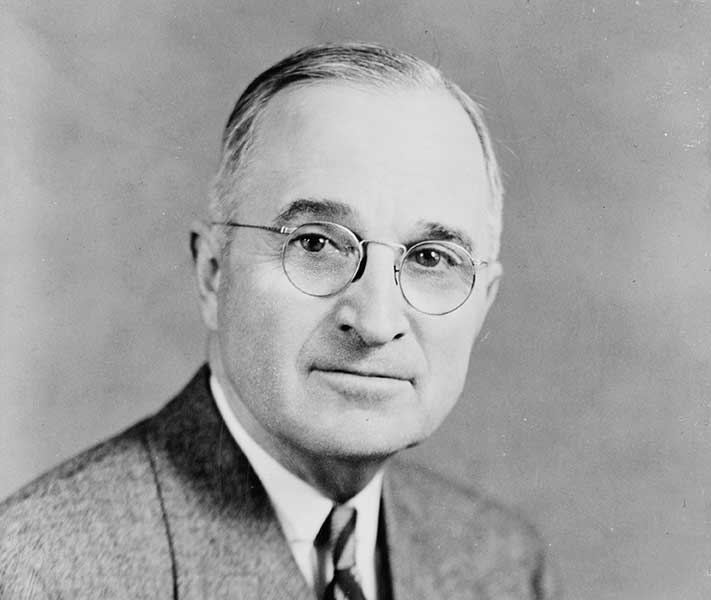Harry S. Truman is Born: May 8, 1884

The only president from Missouri was born on this date in 1884.
Harry S. Truman, the 33rd President of the United States, held office from 1945 to 1953. Born on May 8, 1884, in Lamar, Truman grew up in Independence and later lived in Kansas City. His early years were marked by a mix of rural farm life and small-town upbringing, which instilled in him values of hard work and accountability.
Truman did not attend college, which was unusual for a U.S. president. In fact, Truman was the last U.S. president to have not graduated with a higher degree of some kind. The first was George Washington. Instead, after graduating from high school in 1901, he worked at various jobs, including time as a timekeeper for a railroad construction contractor, and as a clerk and a postmaster for a small company in Kansas City. He also briefly owned a mining and oil company and served in the Missouri National Guard. When the United States entered World War I in 1917, Truman, then in his early thirties, rejoined the National Guard and served in France as an artillery officer, which significantly shaped his leadership skills and perspectives.
After the war, Truman entered politics, gaining his first major public role as a judge of the Jackson County Court in 1922. With the support of the powerful Pendergast machine, he was elected U.S. Senator from Missouri in 1934. In the Senate, Truman gained respect for his down-to-earth approach and his chairmanship of the Truman Committee, which investigated waste and corruption in wartime contracts, saving the U.S. billions and boosting his national profile.
His reputation as a diligent and honest politician led to his selection as Franklin D. Roosevelt’s running mate in 1944. When Roosevelt died in April 1945, just months into his fourth term, Truman assumed the presidency. His presidency was marked by momentous events, including the end of World War II, highlighted by his controversial decision to use atomic bombs on Hiroshima and Nagasaki in an effort to end the war in the Pacific.
Domestically, Truman was known for his Fair Deal, a series of proposals aimed at maintaining and extending the New Deal reforms of the 1930s, including national health insurance, federal aid to education, and civil rights initiatives. Although many of these proposals were not passed by Congress, they set the stage for future reforms. Internationally, his administration was characterized by the start of the Cold War, the implementation of the Marshall Plan to rebuild Europe, the recognition of Israel, and the entering of the Korean War.
Truman left office in 1953 and returned to Independence, Missouri, where he wrote his memoirs and continued to engage in public service advocacy until his death on December 26, 1972. His legacy, once viewed critically, has grown more favorable as historians have reassessed his presidency, highlighting his forthrightness, decision-making under pressure, and significant impact on mid-twentieth-century American politics.
Related Posts
Harry S. Truman Becomes President: April 12, 1945
Vice President, Harry S Truman, assumed the Presidency following the death of F.D.R. on this date.
July 6, 1957
On this date in 1957, the Harry S. Truman Library opened in Independence.
November 2, 1948
This date in Missouri and U.S. history: The Show-Me State's Harry S. Truman was elected president.



